When people study Torah together in groups, they build powerful, lasting social bonds. That’s the premise of IYUN, a new(ish) project that helps educators, lay leaders, and organizations build and lead multi-week Torah learning circles. IYUN’s curricula are not just a sheet of sources, but rather a highly choreographed, step-by-step model to run a successful multi-week cohort experience for 8-20 adults through a specific educational arc. While experts and rabbis are more accessible than ever through online lectures and public events, IYUN focuses as much on the social design as it does on the Torah content to build a highly connected chevra of people who “share their lives together, knowing that we’re all in the same boat out here, and we need to show up for each other if we’re ever going to reach land (just ask Noah).”
This has been an incredibly enriching and wonderful experience for me. I’ve made so many new friends and we’ve bonded in a way few groups do (in my experience). I’ve loved expanding my Jewish knowledge, gleaned not only from the texts–loved those–but also from my fellow learners. We each are so different, but together we grew so fond of each other and created a Jewish group consciousness. I really looked forward to our sessions each week not only for the learning but to see my new friends again!
– IYUN participant
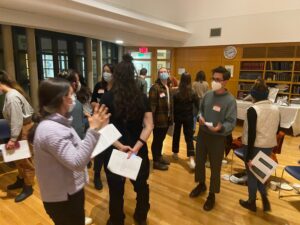 Adults need the space and “the right folk” to have big conversations together. This is especially true during liminal life moments, when people often engage with IYUN as they are searching, exploring, and seeking meaningful connections. The years when someone leaves their childhood home, for example, but before they set down roots in a new family home, are opportune times to encounter deep jewish living.
Adults need the space and “the right folk” to have big conversations together. This is especially true during liminal life moments, when people often engage with IYUN as they are searching, exploring, and seeking meaningful connections. The years when someone leaves their childhood home, for example, but before they set down roots in a new family home, are opportune times to encounter deep jewish living.
Whether partnering with congregations, individuals, JCCs, Moishe Houses, and beyond, IYUN helps leaders each step of the way as they craft their multi-week Torah learning cohort—from curricular content, participant recruitment, marketing materials, group dynamics, teacher training, and ongoing Help Desk support. IYUN staff teach educators how to prepare and successfully execute each session and are always available to troubleshoot, answer questions, listen, and support group leaders quickly and in real time. With this support, IYUN’s facilitators “know how to read a room and get people talking.”
Somewhere in the whirlwind that is this COVID pandemic, I started running out of steam as an educator. No matter how interesting I thought the topics were, my lesson plans began to feel a bit stale. The IYUN program and their team of educators saved me from this difficulty… Thanks to IYUN’s onboarding process and educator training, something magical happened when I began teaching their material to my students. They reminded me that I was not teaching alone… The joy of Jewish learning is that it can be experienced in dialogue, in argument, in community. Being a part of IYUN reminded me of this joy. Anyone who teaches is never alone. We are connected to those who taught, those who teach, and those who will teach. IYUN rekindled a spark that was dwindling a bit within me.
– Rabbi Jason Bonder, Congregation Beth Or
In just its first year, IYUN engaged over 1,000 adult learners in more than 70 learning circles. This coincided with the pandemic where more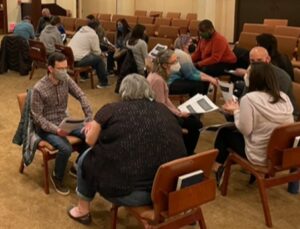 Jews asked big questions about their life and purpose, as they sought meaning, community, and connection. Building on the project’s initial success, IYUN’s leaders, Rabbi Daniel Smokler and Erica Frankel, see a unique opening to engage many thousands of adults in big conversations through Torah. This opportunity they say is due in part to the fruits of decades of outstanding work in Jewish education, making the case in thought and practice for the importance of widespread Torah study. Their previous work growing Hillel’s Jewish Learning Fellowship—now on 200+ campuses with over 20,000 alumni—demonstrates that Torah study, once an afterthought among Jewish college students, is an integral part of the Hillel experience. Those college alumni are the adults now ready to lead and engage in Jewish communal life. And IYUN’s leaders are capitalizing on a chance—perhaps once in a generation or more—to reach beyond those who are currently studying and immediately adjacent to the next levels of Jewish life. With this approach, more adults at inflection points will experience new friendships, meaningful space for thought and reflections, and will develop a lasting love engagement with Torah and Jewish life.
Jews asked big questions about their life and purpose, as they sought meaning, community, and connection. Building on the project’s initial success, IYUN’s leaders, Rabbi Daniel Smokler and Erica Frankel, see a unique opening to engage many thousands of adults in big conversations through Torah. This opportunity they say is due in part to the fruits of decades of outstanding work in Jewish education, making the case in thought and practice for the importance of widespread Torah study. Their previous work growing Hillel’s Jewish Learning Fellowship—now on 200+ campuses with over 20,000 alumni—demonstrates that Torah study, once an afterthought among Jewish college students, is an integral part of the Hillel experience. Those college alumni are the adults now ready to lead and engage in Jewish communal life. And IYUN’s leaders are capitalizing on a chance—perhaps once in a generation or more—to reach beyond those who are currently studying and immediately adjacent to the next levels of Jewish life. With this approach, more adults at inflection points will experience new friendships, meaningful space for thought and reflections, and will develop a lasting love engagement with Torah and Jewish life.
Big Questions Bring Us Together
“Everyone’s welcome, everything’s on the table.” In the rapidly growing IYUN community of practice, educators share hard-fought operational intelligence, commiseration, celebration, and opportunities. IYUN welcomes more congregations, groups of friends, boards, school leaders, JCCs, federations, or giving circles into its community.
The Jim Joseph Foundation is a supporter of IYUN. Learn more at iyun.us.
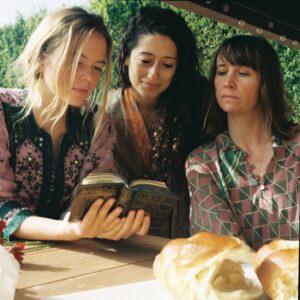
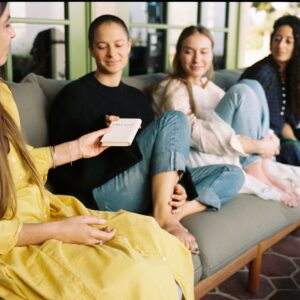 to meet the moment and provided opportunities for deep connection when it was needed most, including:
to meet the moment and provided opportunities for deep connection when it was needed most, including: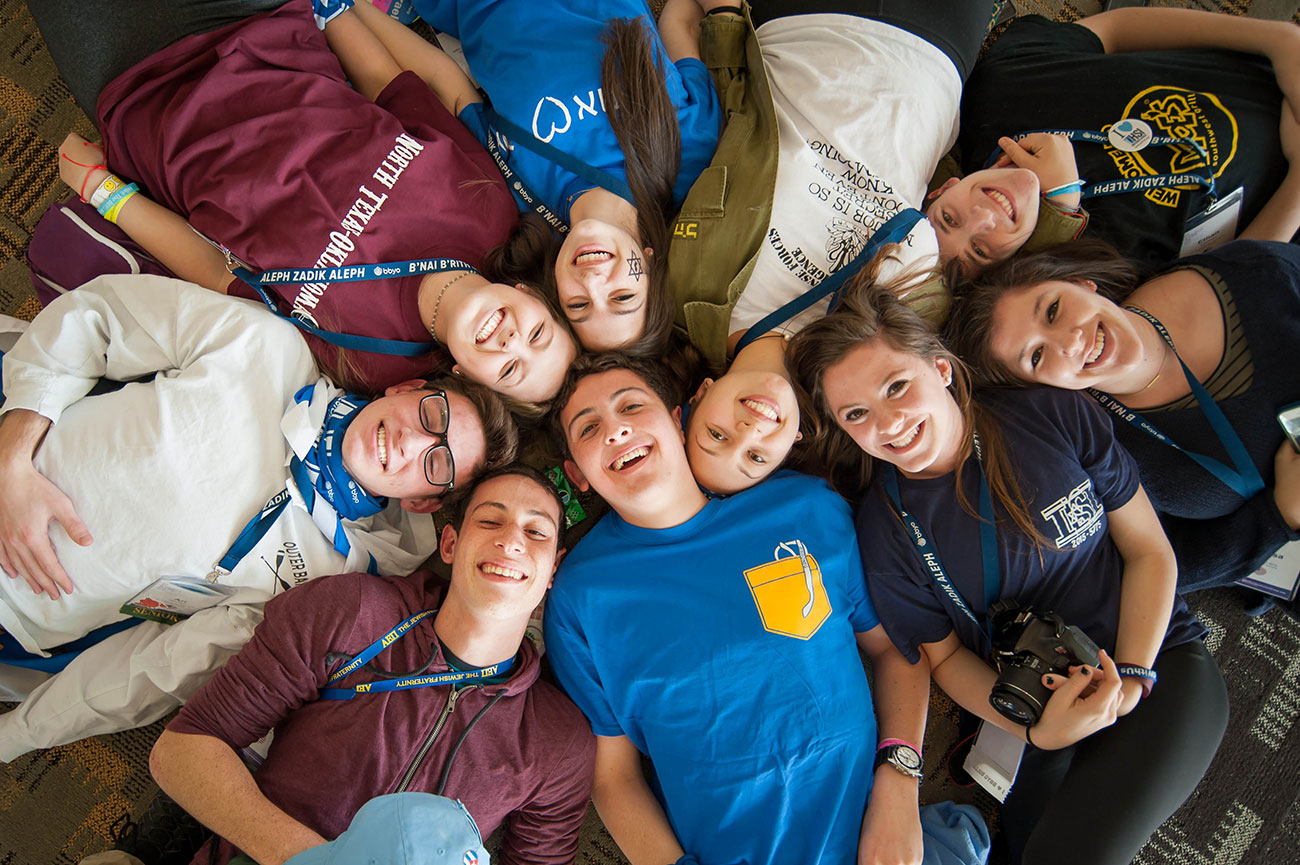 Through the Roundtable, leaders meet regularly to share best practices, problem-solve, and collaborate. They create resources that draw on Jewish wisdom to promote well-being and healthy environments, addressing issues such as addiction and substance use disorders, controlling behaviors, body image, issues of suicidality, creating physically and psychologically safe spaces, how antisemitism, impacts mental health, coping with failure in high performing communities. By their actions, the professionals in the Roundtable have helped prove that Jewish engagement and experiences can be a powerful tool for building resilience. To date, hundreds of professionals have been trained and positively influence youth and young adults every day. Organizations can learn more about
Through the Roundtable, leaders meet regularly to share best practices, problem-solve, and collaborate. They create resources that draw on Jewish wisdom to promote well-being and healthy environments, addressing issues such as addiction and substance use disorders, controlling behaviors, body image, issues of suicidality, creating physically and psychologically safe spaces, how antisemitism, impacts mental health, coping with failure in high performing communities. By their actions, the professionals in the Roundtable have helped prove that Jewish engagement and experiences can be a powerful tool for building resilience. To date, hundreds of professionals have been trained and positively influence youth and young adults every day. Organizations can learn more about 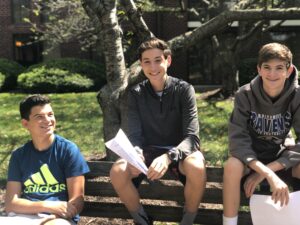 This unique and strategic partnership is helping youth and communities across the U.S. draw on Jewish tradition to strengthen their resiliency, develop the emotional literacy to support friends, and form positive relationships.
This unique and strategic partnership is helping youth and communities across the U.S. draw on Jewish tradition to strengthen their resiliency, develop the emotional literacy to support friends, and form positive relationships.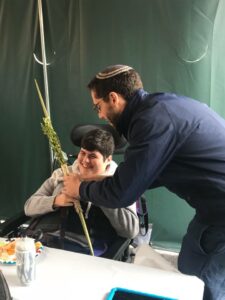
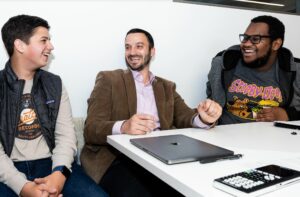 change and advocacy for and modeling of disabilities accommodation. As just one example, all of YCT’s public programming has live closed captioning and ASL interpretation, and soon it will publish a resource book and practical guide for those seeking to do the same. YCT plans to play a similar leadership and advocacy role in the area of social-emotional disabilities as well.
change and advocacy for and modeling of disabilities accommodation. As just one example, all of YCT’s public programming has live closed captioning and ASL interpretation, and soon it will publish a resource book and practical guide for those seeking to do the same. YCT plans to play a similar leadership and advocacy role in the area of social-emotional disabilities as well.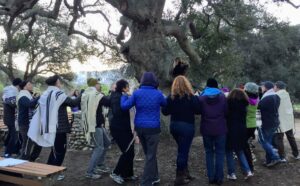 In the past year, more than 10,000 people participated in IJS’s offerings—from online courses on Jewish mindfulness meditation, Tikkun Middot, and prayer as personal practice, to master teachers leading the daily sit, weekly Torah study, and online Yoga studio. IJS also offered specialized training for more than 300 JCC professionals and reached thousands more through its podcast, online retreats, and numerous other programs. These efforts are proven to have positive outcomes. 94 percent of participants in IJS programs say they are more emotionally resilient. And 87 percent of participants say that Jewish spiritual practice deepened their connection with their Jewishness.
In the past year, more than 10,000 people participated in IJS’s offerings—from online courses on Jewish mindfulness meditation, Tikkun Middot, and prayer as personal practice, to master teachers leading the daily sit, weekly Torah study, and online Yoga studio. IJS also offered specialized training for more than 300 JCC professionals and reached thousands more through its podcast, online retreats, and numerous other programs. These efforts are proven to have positive outcomes. 94 percent of participants in IJS programs say they are more emotionally resilient. And 87 percent of participants say that Jewish spiritual practice deepened their connection with their Jewishness.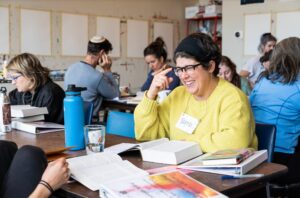
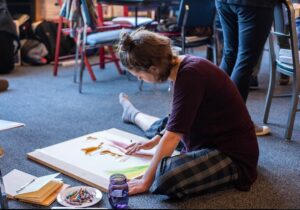
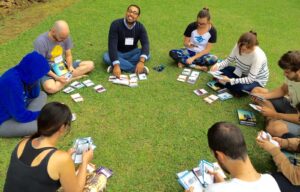 organizations prioritizing it. To support this growth, The iCenter provides a dynamic pipeline of professional certificate and academic degree programs that reach educators and leadership representing day schools, synagogues, camps, youth movements, college campuses, JCCs, federations, Birthright Israel, RootOne, and more. These programs include the
organizations prioritizing it. To support this growth, The iCenter provides a dynamic pipeline of professional certificate and academic degree programs that reach educators and leadership representing day schools, synagogues, camps, youth movements, college campuses, JCCs, federations, Birthright Israel, RootOne, and more. These programs include the 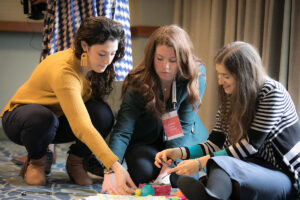 Conflict Education
Conflict Education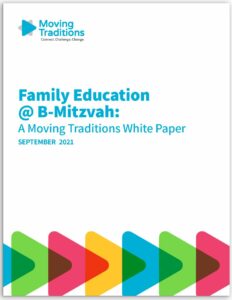
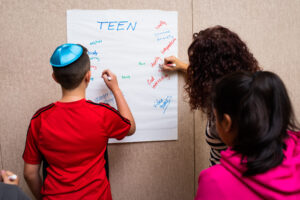 partnership with 110 organizational partners, and includes a call to action informed by Moving Traditions’ recent convening of 50 leading scholars, Jewish educators, activists, and funders. Moving Traditions has adopted the term “b-mitzvah” in place of “b’nai mitzvah” in recognition of trends in gender fluidity. With these findings, and after more than 17 months of the pandemic, Moving Traditions feels even more urgency to develop this new frame of Jewish family education for preteen families.
partnership with 110 organizational partners, and includes a call to action informed by Moving Traditions’ recent convening of 50 leading scholars, Jewish educators, activists, and funders. Moving Traditions has adopted the term “b-mitzvah” in place of “b’nai mitzvah” in recognition of trends in gender fluidity. With these findings, and after more than 17 months of the pandemic, Moving Traditions feels even more urgency to develop this new frame of Jewish family education for preteen families.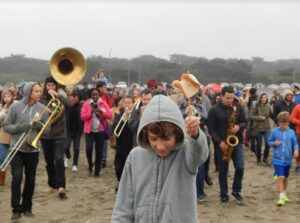
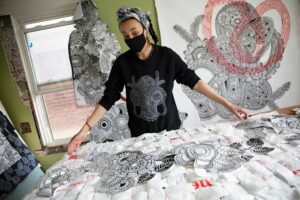 events like
events like 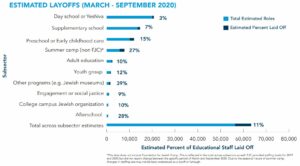
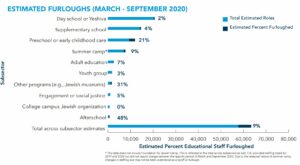
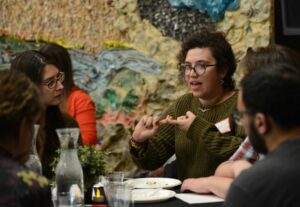 work in the Jewish community focuses in four primary areas:
work in the Jewish community focuses in four primary areas: